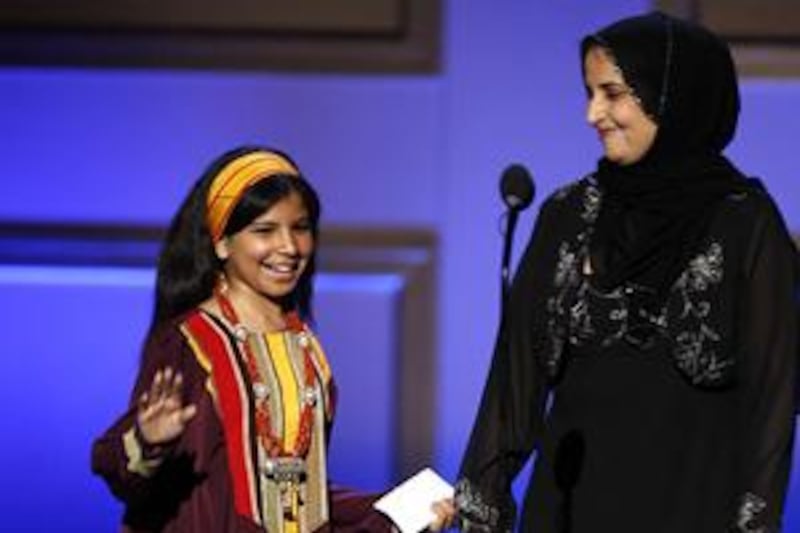When an eight-year-old Saudi girl's mother failed in her legal bid to have her daughter's marriage to a 47-year-old man annulled, it was seen as just another example of what females suffer quietly in the kingdom. But the case has sparked an unprecedented public debate between conservatives and modernisers about the impact of underage marriage on young girls. Last week, reformers fired a salvo when the ministry of health and the government-run human rights commission issued a report about the negative physical and emotional effects of early marriage. It warned that girls deprived of their childhoods by being married off were at risk of developing mental illness.
The report comes after a judge last December refused to annul the marriage of a child, who has not been publicly named, in a union arranged by the girl's father to settle a debt owed to his 47-year-old friend. The judge decided that the mother, who petitioned the court, was not her daughter's legal guardian although he made the father pledge that the marriage would not be consummated until she reached puberty.
"The marriage is frozen right now and the girl's lawyer is appealing the decision," said Wajeha al Huwaider, a human-rights activist who is monitoring the case. The case is similar to that of the Yemeni girl, Nujood Ali, 10, who requested and was granted a divorce from the court last year after her father forced her to marry a 30-year-old man. As the Saudi family wait to return to court, Saudis are openly debating a tradition that supporters say is based on one of the Prophet Mohammed's wives, Ayesha, who is said to have been as young as nine when they married, although some scholars have disputed this.
"This case has really opened the door, there were cases in the past year but because the mother went to the court it has generated a lot of interest," said Abeer Mishkhas, a newspaper columnist who has spoken out against underage marriages in a government newspaper and is among a growing number of Saudis calling on the government to establish a legal minimum age for matrimony. In January, Sheikh Abdul Aziz al Sheikh, the grand mufti and the highest religious authority in the kingdom, said it was acceptable for girls as young as 10 to marry, and if they did not it was an injustice.
"Our mothers and before them our grandmothers married when they were barely 12," he said during a university lecture in Riyadh. "Good upbringing makes a girl ready to perform all marital duties at that age." The mufti's comments are not legally binding. However, he is part of the Salafi religious establishment which has a powerful hold over public life. The shoura council, the 150-member assembly appointed by the king, is debating whether a minimum age of marriage should be set.
"This health report is a response to what the grand mufti said. He is not mentioned by name but it is a way of saying 'it's not right'," said Ms Mishkhas. There are no published statistics on how many young girls are forced into early marriage because some are not registered or the ceremonies are performed by a local imam and completed in the presence of two witnesses. It is believed that many happen in rural, tribal areas where education levels are low and levels of poverty are high.
"We know it is happening a lot, maybe every day and especially in villages," said Ms al Huwaider. In Islam, a girl must voice clear consent during the ceremony, but because Saudi girls are veiled, sometimes families deceive officials by substituting another girl pretending to be the bride who agrees to the match. Mona Abdat, 43, an assessment and educational therapy specialist at the Maharat Center, a cognitive behaviour clinic in Jeddah, is in favour of a minimum age for marriage.
"It is not acceptable. At that age they are moving from one stage of development to another and to marry her so early causes errors in her mental abilities and in her education. Her education is affected so she does not learn about her religion, how to take care of her husband, raise her children and this causes high divorce rates." The traditions of the old days are not useful in helping parents decide when to find husbands for their daughters because society has changed dramatically, she said.
"My mother and older sister got married at 16 but life was different then," said Ms Abdat. "My mother had experience of house work, they had experience working in the fields, they were not children. Now, a girl that age does not know how to cook or have responsibility because everyone has a maid. The way children are raised is different." Ms al Huwaider said the custom persisted because families believed they were protecting their girls from illicit relations with men.
"They want to get rid of the girl and the sooner she is married, the sooner she is protected. They see her as a burden and want to get rid of her." hghafour@thenational.ae





